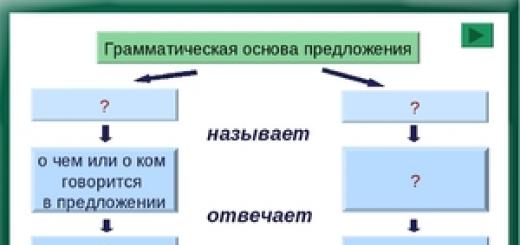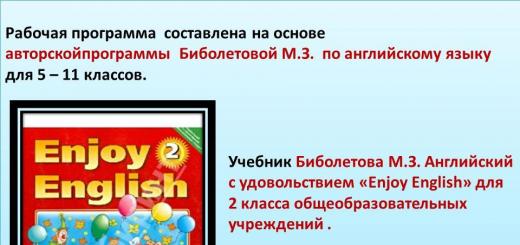Every year, many of our compatriots receive education abroad. Even more applicants dream of studying in good foreign universities, but they are afraid of the high price for education for foreigners. But we will prove that studying abroad for Russians can be free if several important nuances are observed, which we will also discuss in this article.
First of all, it is worth clarifying that education abroad for free means the educational process, that is, a foreigner does not pay only for studying at a university. But food, accommodation, educational materials, library services and other expenses are not included in the funding program. Therefore, before you go to study abroad, you need to have some financial cushion for the entire period of study.
The main condition for studying abroad for Russians and other foreigners is proficiency in international English or the language of the state where they plan to study. If the level of language proficiency is insufficient to get free affordable education abroad, then it is worth using special courses to prepare foreigners for admission to foreign educational institutions.
So, there are several ways how a Russian can get a foreign education for free. However, all these methods are somehow based on financial assistance from the state, a private enterprise, an educational institution, a philanthropist, a public organization, etc.
Here are 7 ways to get free education abroad:
- Grants for free study abroad 2018 or the so-called social assistance to students from the state for the implementation of a professional project, educational expenses, courses, advanced training, training in summer or language schools, etc. The grant is issued in the form of an incentive for distinguished students , at a time, but it is possible to get it again.
- Scholarship from a university or state. A distinguished student may be awarded a scholarship from a foreign university, which will cover the cost of studying in whole or in part. To receive a scholarship, an applicant must write a good motivation letter and attach proof of their services to society. It can be creative, volunteer, scientific, sports activities or other achievements.
- Research fellowship. Such an incentive, as a rule, is issued by an interested person - a private or state enterprise, a public foundation that needs a specialist in a particular field. The research scholarship is intended for those who have graduated from a university and intend to pursue a master's program to carry out further research activities.
- Doctorate. Another type of education that an interested person can pay for is an institution or the state. Unlike a master's degree, a student, in addition to studying, will work as an assistant professor: read introductory courses in the specialty, participate in research projects, etc. This is a good chance to gain tremendous experience.
- Global Education Program. The customer of this program is the Ministry of Education and Science of the Russian Federation. The state pays for education in another country, but the student, after completing his studies, is obliged to return to Russia and work for three years at the enterprise that he is assigned. Under this program, you can enroll in a master's, postgraduate or doctoral studies abroad, and upon completion of it, get a job in the Russian Federation.
- American exchange program Global UGRAD. This program allows higher education institutions from Europe and Central Asia to exchange full-time students who wish to study in the United States. Selection for participation in the Global UGRAD program is carried out on a competitive basis.
- Au Pair exchange program. This program allows Russian students to study on exchange not only in the USA, but in European countries for a period of 4 months to 1 year. Thanks to the Au Pair, students get the opportunity to learn the language, get acquainted with the culture and work abroad for free. This program allows you to live in a family of foreigners and attend language courses, helping in return for the "foster" family to look after the children or run the household.
As you can see, there are many ways to study in another country for free, but before you start preparing for such a process, you need to think carefully: how much you will have to spend on food, accommodation, transport, what documents will be required, what should be the level of language proficiency for admission to university.
Where can I go to study Russian for free? — 10 countries
It should be noted right away that you can study for free abroad only at state universities, since only such universities provide free education for foreigners. Education in private schools is paid. Unless there is a special agreement between a private Russian and a foreign university on a free exchange of students, but this rarely happens.
We list which countries Russians can go to for free study, and what requirements for admission they put forward:
- USA. Students who intend to enter American universities should know that it is impossible to do this without entrance exams. Mandatory testing for all applicants is the SAT exam to test the knowledge of the school curriculum in grammar and mathematics. In addition, you must pass an English proficiency test. At the same time, you can enter the “bachelor's” program after graduating from a school in Russia, and not after graduating from a Russian university.
- Canada. It is easy to enter Canadian universities immediately after finishing 11 classes, unless, of course, the applicant studied well at home. There is no need to take entrance exams for admission. If there is a certificate confirming proficiency in English or French, then the language proficiency test is also not necessary. Upon admission to universities in Canada, the certificate is evaluated, giving preference to those applicants who have high marks.
- Australia. If a Russian is fluent in English and has completed the first year of a Russian university, then he can go to study at an Australian university for free. The main thing is to confirm knowledge of the language with a certificate or passing a language test. If the applicant graduated only from school, then he will first have to undergo training at the zero preparatory course, after which he will receive a “bachelor's degree” in 3 years. But while studying in Australia, you can get two specialties at once.
- Denmark. A country with a very high level of education, in which various exchange programs are widespread. To enter free education in Denmark, you need a special agreement between universities, knowledge of English, confirmed by a certificate, a certificate of secondary education, as well as a certificate from the bank on the state of the account to confirm the ability to pay for living in this country.
- Austria. Teaching is conducted in two languages - English or German. You can enter Austrian universities without entrance tests, but you still have to pass an exam for knowledge of one of the indicated languages. If the language level is insufficient for studying at universities in Austria, then you can take a preparatory course in one academic year to improve your knowledge, get to know the culture and enter the university without any problems in a year.
- Germany. Training also takes place in German or English at the student's choice; entrance exams are also not needed. However, foreigners without higher education in their native country are not admitted to German universities. Foreigners must complete at least two university courses in their home country in order to enter the first course in Germany or complete one course at home in order to enter the preparatory course at a German university.
- Belgium. Another European country that allows Russians to get foreign education. Teaching is conducted in English or French. Entrance testing for knowledge of the school curriculum is not carried out, but the language exam is mandatory. The main plus is that if there are good grades in the certificate, then you can enter immediately after graduation.
- Italy. The universities of this European country are open to foreign applicants who speak English or Italian. It is possible to enter without exams and a language certificate, depending on the availability of higher education and specialty. But, as in Germany, one cannot enter Italian universities without completing at least 1-2 courses of a Russian higher educational institution.
- France. Educational institutions can accept Russian applicants without exams immediately after they graduate from school. For admission, you only need a certificate with good grades, as well as a language certificate or a test in French or English.
- Finland. In this country, students can enter a higher educational institution only after passing exams and language testing. Due to the fact that education is conducted either in English or in Finnish, students who decide to enter a university in this country must confirm knowledge of the language. The college is accepted without exams.
It is worth noting that the educational institutions of Greece, the Czech Republic, Spain, China and other countries offer Russian students the opportunity of free education. But teaching in universities in this case is conducted in the language of the country in which he is located, i.e. Chinese, Czech, Spanish, and so on, and not in English. You can enter universities without passing exams immediately after graduation or after completing the 1st year of a Russian institute.
Elite education abroad
Studying abroad is now of interest to everyone who wants to get an elite, prestigious education. What is elite education? As a rule, this is education at the highest level, which includes highly qualified teachers, high technological equipment and other criteria. Today we are discussing the universities of Britain and the USA.
If you are interested in studying abroad, and would also like to master English perfectly, then prestigious universities and universities in the UK and the USA are waiting for you! Consider the most prestigious foreign higher education institutions.
Welcome to Oxford!
If you are interested in UK universities, then we will talk about them now. Oxford University is one of the visiting cards of England. Oxford is one of the oldest higher education institutions in Europe. This is one of the best universities in England, which gave the world about 50 Nobel laureates.
The history of this school is amazing. It was originally a monastery, the first mention of which dates back to 912. In 1117, it was decided to found the first Oxford University in England, so that the clergy could receive a more complete education. And only under King Henry II Oxford became a real university town, where not only clergymen, but also everyone could study.
In subsequent centuries, the kings of England invested resources in the development of the Oxford abode of science. Modern Oxford is not only an elite education, but also a whole complex of historical and cultural attractions.
In addition to the university itself, it includes the colleges of Christ Church, the chapel of Oxford Cathedral, Magdalen College, the monument to the poet Shelley, the Bodleian Library, which contains 6 million books, the Ashmolean Museum, where you can see the works of Leonardo da Vinci, Raphael, Rembrandt and other geniuses of painting. The botanical garden, indoor market, several other museums, world-famous pubs - all this can be seen in the famous Oxford.
The Bodleian Library is worth a separate discussion. This book storage disputes the right to be called the oldest in Europe from the Vatican Library. The founder of the Bodleian Library, Bishop Thomas de Cobham, who created a small collection of books and initially had to chain them to the wall to prevent the books from being stolen. A few centuries later, Sir Thomas Bodley took over this book depository, who turned it into a real library, for this purpose acquiring books from different countries, including Turkey and China.
As you can guess, this is not just a university, but a whole cultural town. It provides a wonderful opportunity to develop culturally and receive an excellent elite education. Prestigious universities in the USA and England
If you are interested in Cambridge...
We continue to discuss universities in England, and our conversation about where you can get an elite education and what is studying abroad, and we present you another prestigious university in England. As you may have guessed, of course, this is Cambridge.
Cambridge, like Oxford, is one of the oldest university centers in Europe. There are 87 Nobel laureates associated with this university. In 1214, the basic university rules were drawn up in Cambridge. According to these rules, the rector and the program with final exams were appointed. Here they began to teach science, mathematics, philosophy, logic. Oxford and Cambridge have a long history of rivalry with each other.
Cambridge includes 31 colleges, a university library, an observatory, and a laboratory. Educational and scientific activities are organized in several faculties, in different areas: oriental studies, English, musicology, jurisprudence, pedagogy, economics, etc.
The universal library of Cambridge includes not only books, but also notes, manuscripts, drawings, maps. Every year its funds are replenished with copies of books and other materials. The library is open to both teachers and students.
If you are interested in an elite education in Cambridge, then there are grants for foreign students that partially cover the cost of studying in England. So keep it up!
You preferred Harvard...
Let's move on to prestigious US universities. If you are interested in the Harvard educational institution in the USA, then this is also a great opportunity to get an elite education. Harvard is not as ancient as the prestigious institutions of higher education in England, but the history of the United States itself is relatively new.
Harvard University was founded in 1636. Initially, it was a college and clergymen studied there. After the American Civil War, Harvard was transformed into a university. This university has graduated from 8 US presidents, and 75 Nobel laureates have been associated with it, as its students or teachers.
Harvard University in the USA includes 10 faculties: the Faculty of Medicine, Theology, Dentistry, Business, Design, etc., as well as the Radcliffe Institute for Advanced Study.
It is worth noting that the Radcliffe Institute for Advanced Study provides scholarships on a competitive basis as part of its program in various fields of study. This program is designed for scientists working in various fields, as well as for people in creative professions, such as video graphics artists, film artists, sound and video designers, etc.
All these universities are prestigious world universities. And these are not just universities, but real cultural centers in the USA and England, where world-famous professors teach. Residents of England and the United States are very proud of their oldest educational institutions, allowing you to get an elite education.
Studying abroad is a reality these days; The only question is the cost of education. In any case, if you are interested in these prestigious universities and want to get an elite education, then go for it, you will succeed!
What do you need to enter foreign universities?
Each university from abroad has its own requirements for foreign applicants, but almost all of them are identical. Students from Russia can enter foreign universities by fulfilling the following requirements:
- You must provide a high school diploma. This requirement is very important, since during the acceptance of documents, the school leaving certificate will be considered first.
- Documents in which the results of exams are indicated. Be sure to provide certificates of the exam or GIA. The scores in these documents can significantly affect the decision of the commission.
- In order to get a second higher education or to enroll in a master's or doctoral degree, a diploma from a Russian university is required.
- Knowledge of English. Since many universities teach in English, you need to know it. Basic knowledge of style, grammar, reading and spelling are all required to pass the test. For almost every university, one of the main points for admission is the TOEFL test, which takes place on a computer.
- Age also plays a big role in admission. You must be at least 18 years of age.
- Passing entrance exams. Most often, universities are accepted without exams, but in some countries of America they may require the passage of a standard SAT exam. Also, instead of exams, an interview can be conducted by phone or Skype.
- Those who wish to enter a master's program must also be prepared to take a standardized exam.
- It is necessary to complete 1-2 courses of a Russian university. Many foreign universities may not accept you for 1 course due to the fact that their school education system has 12 classes. In Russia, it is different and therefore foreigners need to complete several courses at their native university in order to enter.
The list of documents that are needed for admission to universities abroad for free education:
- A certificate confirming the completion of secondary education.
- Diploma certifying higher education.
- Resume or curriculum vitae in the form of CV.
- A copy of the Diploma Supplement or an extract from the transcript if the graduation document has not yet been received.
- Language certificate.
- Certificate of passing an exam or test.
- Questionnaire, which is filled in according to the requirements of the university. Some universities post it electronically on the website. It must be printed and submitted already completed in printed form.
- Recommendations from curators, teachers and the dean of the university. Their number is from 3 to 5.
- Motivation letter. Here you need to tell what prompted you to enter this particular university, what you like about their training program. It will not be superfluous to tell about your achievements and hobbies, this will allow you to fully reveal your personality and will place the members of the commission.
Every document matters. If you do not provide any commission may not enroll you in the university.
Useful experience: how a Ukrainian entered 10 US universities
A real sensation in 2017 was the student of the Kyiv Financial and Legal Lyceum Georgy Solodko, who was able to enter 10 US universities at once. According to the student himself, he applied to the top 20 American universities, but received a positive response from only half of them. They sent their offers to George, including Stanford and Harvard, but Solodko settled on the latter, where he is now studying with Obama's daughter.
A Ukrainian student managed to receive a $300,000 grant from Harvard University, which fully covers the expenses not only for the entire period of study, but also for housing, food, transport, etc. But air tickets for flights home, participation in various scientific conferences and Georgy pays for study materials himself.
At the moment, Solodko is the only Ukrainian in Grvard, but he assures that any Russian, Ukrainian or Armenian graduate can become a stent of this prestigious university. To do this, you need to study well in your homeland, know English, participate in the life of society, be persistent, friendly and have an active life position.
In addition, when submitting documents to a foreign university, you need to provide academic recommendations from teachers in which they describe the success of their student, his hobbies, talk about his position in life, academic performance and leadership qualities. Moreover, just a dry theory is not enough: it is necessary to reveal the personality of your ward with specific examples.
In addition to recommendations from teachers, you need to pass the SAT - the main exam for knowledge of English, mathematics and other school subjects, as well as TOEFL. The higher the scores obtained for these tests, and the higher the score in the certificate, the more likely it is to enter an American university. Passing each exam costs the applicant about $ 100. You also need to pay about $20 to send your results to universities.
If the university management has any doubts about the applicant, then he will be assigned an additional interview - an interview via Skype. During this conversation, you should follow the dress code: appear in decent clothes - in trousers and a shirt or jacket. You should not go through an interview in an old T-shirt and shorts, drinking tea.
According to Georgy Solodko, the whole process of preparing for admission to foreign universities took him about a year. It took about three months to prepare for the tests. The path, of course, is long, but free study at a prestigious university is worth it!
Marina Mogilko also entered 5 US universities, two of which provided her with full funding for her master's degree and MBA. Today Marina provides how to prepare and apply for study programs at state universities and internships abroad.
So, we have proved that it is quite possible to get an education abroad for free, but you need to have good academic performance, determination and know English!
A significant number of applicants dream of getting a good education abroad and staying there to live. However, many are repelled by the price, because it usually turns out that guests of the country pay more for education than native residents. The question often arises: is it possible to get a quality education abroad for free?
Free education in Denmark
One of the countries providing free education for international students is Denmark. Only residents of EU countries or students who have officially arrived on an exchange can study at free universities in Denmark (there must be a formalized agreement between universities). In all other cases, you will need to pay for your studies. Universities of the most beautiful Danish cities offer free education: Copenhagen University, Ahlboge, Aarhus University and Odense. All of them teach according to world formats in English.
University of Copenhagen
Why you should choose the country of Denmark for studying without paying:
- Denmark is a state with one of the best teaching systems.
- Each university has a wide range of specializations.
- The education process takes place in English.
- If you are an EU citizen or came on an exchange, then you will only need to pay for living in a hostel - 300 euros per semester.
- The university gives you the opportunity to work while studying.
To apply for a Danish university, you need to have the following documents:
- Certificate of Proficiency in English. It is possible to get it for free.
- A letter of recommendation in the language that is the language of instruction (from the place of previous study).
- Letter of motivation from you in English (tell us why you should be chosen, what you can do and what you want to learn).
- Mandatory presence of a visa.
- A certificate from the bank on the status of your account (confirmation that you have enough to live in a foreign country).
The list of other papers should be checked with the university administration. 
Free education in India
To receive free knowledge in this eastern country, the applicant must obtain an ITEC certificate, which confirms your completion of the Indian program of technical and economic cooperation. Each year, the government of India issues a decree with different professions that qualify under this program. Most often, visitors apply to Calcutta University, Mumbai, Delhi and Indian State University of Management. The list of documents can be found at the Indian Embassy in your country, or on the website of the university where you will study. Each has its own list, so you need to recognize it personally there. We can say one thing - a visa is required.
Anyone can apply for a unity university in India, even an ordinary tourist. This famous institution is engaged in the spiritual development of a person, teaching him the moral values of the world. The university is also called the "Golden City", its branches are in many cities of the world, including Russian ones. Anyone can come there. Money usually goes only for accommodation and food.
Free education in the UAE
Universities in the UAE have long attracted students from all over the world. There are several types of universities in this country: public (only for UAE citizens), private (some of them only for citizens) and international universities. It is precisely the latter who are engaged in free teaching. They have connections with many universities in other countries, so they develop many programs for foreigners. 
Although the language of the state is Arabic, nevertheless, all training takes place in English.
You can enter and receive knowledge for free only if you passed the entrance exams perfectly. But before that, you must collect and show the following documents:
- Certificate for 11 classes of education at a school with a rating score of at least 3.5.
- Certificate of Proficiency in English.
- Study visa.
- Certificate of passing the state testing Academic IELTS or Internet Based TOEFL.
Examinations for admission are determined depending on the profession.
Free education in the Baltics
Universities of Latvia do not give free knowledge to visiting applicants, even if they pass the entrance tests with excellent marks. Free grants and places are available only for citizens of the country. Therefore, it makes no sense to talk about universities in Latvia.
But Lithuanian universities and Estonian universities with open doors will accept literate visiting students for free education. Therefore, you must show all the necessary documents on time and pass the entrance test with excellent marks. If everything was successful, you can safely apply for participation in the competition for a grant and budget places. Here are the documents you need to collect: 
- High School Certificate.
- Application for enrollment in Lithuanian and Estonian universities.
- Motivation letter for the institution.
- Certificates of the form TOEFL or IELTS about knowledge of English (if the submission of the material will be taught in it).
- Copies of passport and photograph.
- A certificate from the bank on sufficient funds to live in a foreign city (about 100 euros per month).
Advantages of obtaining a qualification in the Baltics:
- Specializations of the Russian or Kazakhstani type are considered equal to the Baltic ones.
- Teaching subjects for some programs is conducted in Russian.
- The Baltic diploma is quoted all over the world.
- The university is obliged to send you for an internship.
- During the training, you will be assigned a mentor - a native of the city, who will help you understand the system.
- It is not necessary to know English perfectly, it will be easy to communicate with you in Russian.
In addition to grants, the Baltic often finances loans for education with further working off the amount in distribution companies.
Free education in Greece
Universities in Greece provide university education without payment only to visiting citizens! All residents of the country are forced to study in private institutions. Here is why this place should be chosen by future students: 
- Everything, down to food and education, is free for visiting students.
- Registration at the university is carried out during the competition of certificates. At the same time, you may not even be in the country.
- Knowledge of Greek is not required.
- Greek diplomas are in demand all over the world.
To do this, you need to make only one payment - for the selection of the faculty and assistance in signing papers. The sooner the applicant thinks about it, the less the amount will be. Different universities in Greece have different amounts.
To study in Greece without paying, you must provide:
- Certificate of secondary education with a score of at least 4. Otherwise, the applicant will not even be able to participate in the competition.
- A certificate from the bank on the financial condition of the student's family.
- Motivation letter.
Other documents can be found on the website of the selected university.
Free education in Belgium
The difficulties of obtaining knowledge at universities in Belgium are that only 2% of visiting students are taken there every year. And this means that the selection is very tough. According to the rules, the number of Belgian citizens in universities should be greater. 
Of course, in order to get your place, a citizen of another country can pay an additional fee - 2000 Euros. But you need to do this 10 months before the start of enrollment in the course.
Foreign guests of the Belgian University, of course, are given grants to gain knowledge and free places. Just after passing the entrance exams, you need to apply for participation in the NATO, WHO, UNESCO and UN competition. All conditions can be found on the websites of these organizations. Each applicant must be fluent in the state and English languages.
Knowledge of the language of communication is necessary at least at the initial level.
Free education in the Balkans
Serbian universities give their foreign applicants grants to gain knowledge. The budget place includes scholarships, tuition without payment and health insurance. But getting such a grant is not easy. You need to collect the following papers: 
- School leaving certificate or certificate of the first higher education already received.
- Bank statement confirming financial security.
- Certificate stating that you have no criminal record.
- Conclusion about the healthy state of the body.
- Passport (copy and original).
In addition, entrance exams are held, which determine whether the applicant will give money for education or not. If you did not manage to enter a certain university, you can send papers to another 16 Serbian universities.
Universities in Romania and universities in Hungary have the same laws. But the universities of Croatia and the universities of Slovenia cannot provide education without paying their students from other countries. There, for a year of obtaining knowledge at a regular university, you will need to pay about 2000-2500 euros.
Free education in Portugal
If you are a citizen of the European Union or are going to study in Portugal for an exchange from another university, then you can safely apply for a free place. It's not so easy for those coming from the CIS to get there. But there are still free places.
There are no less requirements for visitors than for natives. Everyone should know the Portuguese language and the culture of the people perfectly, no matter if you are a local or a visitor. This is taken into account when passing the entrance test. Before it, you need to show a list of papers: 
- Certificate of secondary education.
- Health insurance.
- Certificate from the bank on financial stability.
- Grade for the Portuguese language proficiency test.
- Visa.
To get an excellent mark in Portuguese, you can pre-register for courses that are held at the university of your choice. It is best to start preparing for admission in advance, and not a few weeks before applying.
Universities in Portugal are approved as one of the best and cheapest in the world.
But there are other countries that are popular among foreign applicants. So, for example, the universities of Mexico, Brazil, Thailand do not provide grants for budget places for visiting applicants, but there you can start getting a scholarship because of excellent studies. Thus, at least some money is returned to the hands. It is not difficult to start studying at universities, the same documents are required everywhere. It is clear that the level of education there is much lower than in Europe, but their diplomas are also valid all over the world.
Universities in Ireland and universities in Iceland also do not differ in free teaching. They train future qualified employees, the teaching of knowledge in these states is able to compete with the teaching system, for example, in Britain. Thus, registration of admission to institutes there is far from cheap. Educational institutions in Ireland very often give part-time jobs to their students.
Of course, there are many universities abroad, waiting for visiting applicants. Many easily give away state-funded places, while others teach only newcomers with the help of a grant. Do not forget that studying abroad is possible with a valid visa that does not expire in the middle of the semester. If this happens, then it will be difficult to recover in an educational institution.
Free education outside your country is quite real! You can study in many of the above countries.
Various forms of cooperation with foreign universities, Western companies, organizations and foundations, including internships and student exchange programs, are supported today by many Moscow universities. The main projects that provide students with ample opportunities to participate in international internships are TEMPUS-TACIS, Erasmus Mundus, British Council programs, YOUTH, Baltic Sea Region, EU transatlantic programs, EU framework programs for research and technological development.
Moscow State University M.V. Lomonosov Moscow State University
The number of partner universities of the famous Russian university is more than 50. Among them:
- In Italy - Universities of Bari, Bologna, Milan, Padua, Palermo, Rome, Florence
- In France - University Paris-I; University. R. Schuman; Higher School of Philology and Humanities (Lyon); Paris X University; National School of Bridges and Roads
- In Germany, the University Humboldts; Jena University. F. Schiller; University. M. Luther (Halle-Wittenberg); Universities of Kaiserslautern, Tübingen, Marburg
- In the USA - State University of New York (SUNY)
- In the Netherlands - Delft University of Technology
- In Finland - the universities of Helsinki and Tampere
- In Spain - University of Alicante
- In Austria - Salzburg University
- In Switzerland - University of Geneva
- In Sweden - Stockholm University
In addition, various international student exchange programs are implemented jointly with universities in Poland, Macedonia, Lithuania, Serbia, Slovakia, Albania, Ireland, the Czech Republic and a number of other countries.
More detailed information about internships and grants can be found on the corresponding page of the Moscow State University website http://www.msu.ru/int/stazh.html.
National Research Technological University MISiS
First of all, we can note especially active cooperation with German universities and companies. MISIS partners in Germany:
- Technical University of Hamburg-Harburg
- Technical University - Dresden
- Otto von Guericke University of Magdeburg
- Technische Hochschule Reutlingen
- University of Stuttgart
- University of Essen
- Johannes Guttenberg University Mainz
- Regensburg Technical University
- University of the Bundeswehr, Munich
- Jena High School
- Association of German MISiS Alumni
- Rhine-Westphalian Technische Hochschule
- Freiberg Mining Academy
- Technical University - Clausthal
- University of Karlsruhe
- Dresden University of Technology
- Badische Stahl-Engineering GmbH
- Technische Hochschule Zittau/Görlitz
- Reinz Dichtungs GmbH
- Technical University of Munich
- University of Technology and Economics Dresden
- Technical University of Munich
- Otto-Friedrich University of Bamberg
- BWG Bergwerk- und Walzwerk-Maschinenbau GmbH
- Technical University of Ilmenau
- VDI Technology Center
- European Aeronautic Defense and Space Company - EADS
- Daimler-Chrysler Research and Technology
- Frenzelit Co GmbH
- Institute for Advanced Studies Zwickau
- EKO Stahl GmbH
- Yohann Wolfgang Goethe University
The partners of the Russian university in other countries include the following educational institutions and organizations:
- In the USA - University of California (Fullerton); Air Force Research Laboratory; Civilian Research and Development Foundation; Alcoa Inc.; University of Illinois; Colorado School of Mines (Golden); University of Northern Iowa (Cider Falls); International Science and Technology Center; NATO Research Program; General Motors Corp.
- In Canada - Montreal Polytechnic School
- In the Netherlands - Netherlands Research Foundation; AKZO Nobel Aerospace Coatings; SKF Research & Development Company B.V.
- In the UK - Imperial College; Royal Society; Universities of Cambridge, Nottingham, Sheffield
- In Italy, the University of Udine; University of Rome "Tor Vergata"; National Institute of Nuclear Physics, Padua; Universitat Politecnica dele Marche; University of Ancona;
- In France - the National Engineering School of Saint-Etienne; University of Paris Orsay Cedex; National Polytechnic Institute of Grenoble; Arcelor Research S.A.; Metz National School of Engineering; National Polytechnic Institute of Lorraine (Nancy); Aix-Marseille University of Law, Economics and Sciences; National Higher School of Arts and Crafts (Paris); CNRS
- In Switzerland - ETH Zurich
- In Spain, the University of Barcelona; Instituto de Ciencia de Materiales de Sevilla
- In Belgium - Technical University of Brussels
- In Austria - T Technical University of Vienna; Mining University Leoben
In addition, MISiS cooperates with universities in Bulgaria, Hungary, Israel, Latvia, Poland, Serbia, Slovakia, Slovenia, Finland, the Czech Republic, Sweden, and a number of other countries. More information about international academic mobility programs can be found on the page http://misis.ru/ru/74.
Internships in Western companies
As part of international educational projects, large transnational companies offer various internships to senior students or graduates of Russian universities. Potential employers especially appreciate graduates of such prestigious Moscow universities as Moscow State University, MSTU, MGIMO, MIPT, MESI.
Among the companies showing interest in graduates of Russian educational institutions are Procter & Gamble, Ernst & Young, PricewaterhouseCoopers, Microsoft, Daimler-Chrysler.
It is important to note that Western companies are very scrupulous in the selection of candidates for internships. Applicants should prepare for the most serious competition. At the same time, those who have passed the selection, the chances of getting a permanent job are very high. So, for example, in Ernst & Young more than 95% of interns receive offers, in PricewaterhouseCoopers - more than 80% of interns.
Additional "intellectual emigration" from our country is an obvious negative side of such cooperation.
At the same time, interuniversity exchanges and internships in large Western companies are factors that create additional competition among Russian students and generally increase the level of students' preparation. For students, the undoubted advantages of cooperation between universities and companies at the international level are the possibility of obtaining a double diploma and additional employment prospects.
Alexander Mitin
Stanford - the names of these universities are widely known, but this information is not enough when choosing a university for studying abroad. Many factors need to be taken into account.
Choosing a university
After you have decided on the country (you can find an overview of the countries themselves in the "" section about choosing a country for studying and an overview of the countries themselves), you can narrow the search to a specific educational institution. Usually, everyone first of all studies university ratings. You need to know them, but the information presented in them should be analyzed very meticulously. Most often, you need to choose the program, not the university.
Rankings, for example, the QS World University ranking can be sorted according to the criteria you need. For example, you are looking for universities in Germany where you can study biology. In the top will be Ludwig-Maximilian University in Munich and Heidelberg University. If you are interested in programs in computer technology, you will see a different alignment: the Technical University of Munich, the Karlsruhe Institute of Technology and the Humboldt University in Berlin will occupy the top positions.
In addition, ratings are compiled on the basis of different criteria. For example, there may be a ranking based on the academic base or the attractiveness of graduates of this university for employers. If you plan to do science, then the first criterion will be more important for you than the second, and if you are thinking about a career in business, then most likely the opposite. When studying rating data, be sure to take an interest in the methodology: it happens that researchers equally take into account both the equipment of laboratories and the quality of food in a student canteen.
In addition to global ones, study the rankings for universities in a particular country. For example, the rating of the Guardian newspaper is authoritative for British universities. In this case, the choice of universities will be wider, and universities that are not included in the global rankings are not necessarily bad. The reason for not being in the "big" rating may be due to the young age of the educational institution or a narrow specialization, but maybe this is exactly what you need.
Select a few universities to compare. Carefully study the content of courses and programs, the number of academic hours, biographies of teachers.
As a rule, you will find this information on the university website. If there is little information in the public domain, you can always contact the university by e-mail.
For those who are going to enroll in master's programs and especially in graduate school, the key point is the personality of the supervisor and research base on the topic of interest to you. In some universities, despite the big name, there may not be a star scientist and scientific developments in your specialty.
If you would like to gain hands-on experience while studying, check the university's policy on student internships. It doesn’t hurt to talk to students and alumni: many universities advertise internships, but in reality this may turn out to be a formality. Look for those universities where internships are taken seriously, as well as those that have established cooperation with companies.
Dreaming of an international career? Then choose such programs where you will have the opportunity to study in an international environment and go on an exchange internship to other countries. Also ask how the diploma of this university is quoted in the international arena.
Choosing a specialization
 If you still haven't decided what you want to study, don't worry. In some countries, for example, in the USA, undergraduate studies begin with general courses, and only then you can choose a specialization, and if you don’t like it, you can change it.
If you still haven't decided what you want to study, don't worry. In some countries, for example, in the USA, undergraduate studies begin with general courses, and only then you can choose a specialization, and if you don’t like it, you can change it.
As a rule, most European universities are divided into two types - academic and applied. In the first place, the emphasis is on theoretical knowledge and scientific research. However, if you are applying for a bachelor's degree, then a diploma from such a university will be a good start. As a rule, academic universities are the oldest and most famous educational institutions in the country. However, if you are planning to enroll in a master's program or receive a second higher education to develop a career in business and industry, then you may be more interested in practice-oriented programs in applied universities.

Getting higher education abroad is not only prestigious, but also opens many doors in life. After graduating from a European, American or Canadian university, a graduate is given a unique opportunity. 
You can enter most foreign universities right after school. Of course, this information should be obtained from the university in which admission is planned.
Some European countries, for example, Germany, do not always accept graduates of Russian schools and I advise you to enter after completing at least one course at a university in your native country. It is advised to start thinking about entering a foreign university about a year or a half before graduation: look at the options, choose universities, write letters to them with clarifying questions and take the necessary exams.
You can send documents and apply to almost all educational institutions online by scanning documents and passing an interview via Skype. A huge advantage of electronic admission is the ability to send documents to a large number of universities, thereby increasing the chances of enrolling in one of them. Most often, universities require the following documents to be sent:
- Certificate.
- Diploma (when applying for a master's degree).
- Certificate confirming knowledge of the language.
- Motivation letter and resume.
In what cases can a student enter a foreign university?
All documents must be translated into the language of the program that was chosen for admission (English or the national language of other countries). Certificates and diplomas require not only a certified translation, but also an apostille.
At the time of submission of documents, the certificate of knowledge of the language must be valid (for example, IELTS is valid only 2 years from the date of delivery). The resume should include education, courses taken, languages and hobbies. It is worth writing a little about yourself, your knowledge, hobbies and why you want to study at this particular university.
You should also carefully consider the period for receiving documents for admission, especially for foreigners. Some countries accept applications only until May, when the certificate of completion of 11 classes in Russia and the CIS is received only in June. In such cases, you need to contact the university directly and ask for permission to enroll before receiving a certificate or diploma.
An important aspect is the initial investment. Even if a prospective student is sure of receiving a grant or enrolling in a free study abroad program, he will have to spend money on preparing the necessary documents for admission. Another waste will be passing the language exam, since almost all of them are paid. That is why it is worth giving enough time for preparation in order to pass the required score the first time.
The system of higher education abroad
Free Education Opportunities
Germany
Financing education around the world
It is worth noting that some universities offer their own grants or scholarships. Information about funding is always worth asking when contacting the foreign department at the university.
Erasmus Student Exchange Program in Europe
Participating in the Erasmus student exchange program, a foreigner can go to study for one semester at a foreign university, which is also a participant in the program. Many large universities in Russia and the CIS countries are in partnership with European universities, thereby providing an opportunity to participate in the program.
It is worth noting that first-year students cannot participate in the program. You can apply only if the student has already successfully completed 2 semesters.
Grant for studying in the Netherlands
is one of the most favorable countries for moving and starting studies, especially for those who do not yet know the local language. Universities offer many programs in English, and almost the locals speak it and will be happy to help you understand and get comfortable in the country.
The Dutch government offers 5,000 euros to pay for undergraduate or graduate studies.It is worthwhile to start applying for a grant in advance. Applications usually close in May.
Getting a grant in Sweden
Offers some of the most generous grants in the world. Firstly, when receiving a grant, you do not have to worry about paying for your studies - a financial institution automatically sends them money. Secondly, the grant covers the flight to Sweden. And thirdly, the participant receives about 950 euros per month for renting an apartment, paying for insurance and food.
It is necessary to write a resume, write a motivation letter, take letters of recommendation from places of work.










